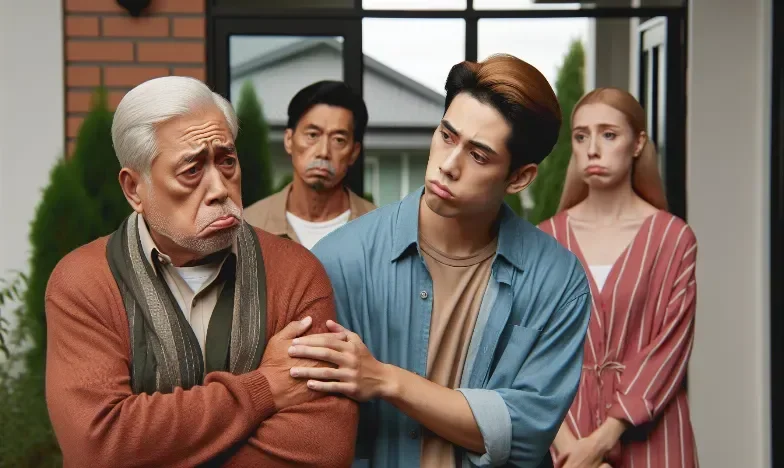“I Took My Father to a Nursing Home for His Well-being, But My Family Won’t Forgive Me”
When my father, Harold, started showing signs of severe dementia, I knew I had to make a difficult decision. As his primary caregiver, I watched him struggle with daily tasks, forget familiar faces, and become increasingly agitated. It broke my heart to see him like this, but I knew he needed professional care that I simply couldn’t provide at home.
After much deliberation and sleepless nights, I decided to take Harold to a reputable nursing home. The facility had excellent reviews, and I was confident that the staff could offer him the specialized care he required. I believed it was the best decision for his well-being.
However, my family didn’t see it that way. My brother, Joshua, and my sister, Leah, were particularly vocal about their disapproval. They accused me of abandoning our father and claimed that I was taking the easy way out. “You’re just getting rid of him because you can’t handle it,” Joshua said during one heated argument. Leah added, “This is how people discard their loved ones. You’re no different.”
Their words cut deep. I had always been close to my father, and the last thing I wanted was to be seen as someone who would abandon him. But I knew that keeping him at home was no longer an option. His condition was deteriorating rapidly, and he needed round-the-clock care.
Despite my family’s objections, I went ahead with the plan. The day I took Harold to the nursing home was one of the hardest days of my life. He looked confused and scared, and I felt an overwhelming sense of guilt. I tried to reassure him that this was for the best, but I wasn’t sure if he understood.
In the weeks that followed, my family’s resentment only grew. Joshua and Leah refused to visit Harold at the nursing home, insisting that I had made a terrible mistake. They spread their disapproval to other relatives, and soon, I found myself ostracized at family gatherings. Even my cousin, Aria, who had always been supportive, started to distance herself from me.
I visited Harold every day, hoping to see some improvement in his condition. But instead, he seemed to be getting worse. He became more withdrawn and less responsive. The nursing home staff assured me that this was a common progression of dementia, but I couldn’t shake the feeling that my family’s accusations were true. Maybe I had made the wrong decision.
One day, during a particularly difficult visit, Harold didn’t recognize me at all. He looked at me with vacant eyes, and I felt a pang of despair. I left the nursing home in tears, questioning everything I had done.
As the months passed, my relationship with my family continued to deteriorate. Joshua and Leah stopped speaking to me altogether, and I felt increasingly isolated. I tried to explain my decision to them, but they were unwilling to listen. They were convinced that I had abandoned our father, and nothing I said could change their minds.
Harold’s condition continued to decline, and he eventually passed away in the nursing home. I was there with him in his final moments, holding his hand and telling him how much I loved him. But even in those last moments, I couldn’t shake the feeling of guilt and regret.
After Harold’s funeral, my family remained distant. The rift between us seemed irreparable. I had hoped that they would understand my decision in time, but that never happened. Instead, I was left with a deep sense of loss—not just for my father, but for the family I had once been so close to.
